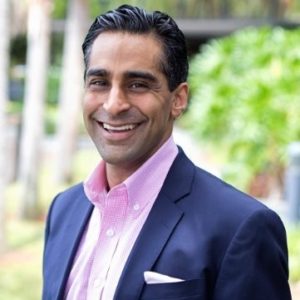Capital Efficient Entrepreneurship: Neil Vaswani, CEO of Corestream (Part 1)

If you haven’t already, please study our Bootstrapping Course and Investor Introductions page.
Neil has turned a $3M investment into a ~$10M annual revenue company by addressing a cumbersome piece of workflow in benefits management. Read on to learn how.
Sramana Mitra: Let’s start at the very beginning of your journey. Where are you from? Where were you born, raised, and in what kind of background?
Neil Vaswani: I was born in New York and lived there for a part of my life. My parents are from India. I did live in India for a while and spent some time in Europe. I went to school at Babson College and then moved back to New York City right around 2000. I started Corestream probably about 2006.
Sramana Mitra: Right out of college?
Neil Vaswani: Right out of college, I did not know what to do. I knew I wanted to do something in entrepreneurship. My father was in the jewelry industry. He was the classic tradesman from India. He had an office on 47th Street. I thought I could start there. But my father did not want me in the business because he felt like he sent me to these great schools and did not want me limiting myself to the jewelry industry, which he felt was archaic.
He wanted me to deal with something more ambitious and something more exciting. That was tough for me to hear, because it was the family business. I was expecting to join the family business. He told me, “I’ll give you six months. If you like it, it’s up to you.” I gave it a shot for six months. The jewelry industry is pretty archaic. You have the old school Jewish, old school Indians, old school Chinese, and old school Russians.
Sramana Mitra: What year was this happening? When were you trying your hand at the jewelry industry?
Neil Vaswani: I graduated in 1999, so early 2000.
Sramana Mitra: This was when Blue Nile was coming into existence.
Neil Vaswani: Exactly. I actually wrote a business plan at Babson about taking jewelry online. I started to do that. I was pitching that concept right when Blue Nile was just starting to emerge. I thought that was where I would eventually evolve the business. It’s a rough industry. It’s a dog-eat-dog, zero-sum culture. The suppliers are all screwing over each other. It trickles down to where people don’t pay each other.
Ultimately, there was a lot of Russian mob money coming into that industry. I remember when my dad took me through my first negotiation. What I realized was the person who wins the negotiation is the one that’s willing to yell louder. It’s not based on reason or empathy. I left there. My dad nudged me to try something new. It was right towards the tail end of the dot-com boom. I decided to try my hand at the new media space.
Sramana Mitra: What were the steps that you took to do that?
Neil Vaswani: I just went through the job interview process and talked to a lot of dot-coms and new media companies. I found a company that was in HR tech that I thought was interesting. They were focused on flexible spending account, which was then emerging along with an online marketplace for employers to offer to their employees. I joined that company in 2001. They’re not around anymore. They raised a lot of capital. It’s pretty much what I studied at Babson. It was exciting to be part of a high-flying cool startup.
Sramana Mitra: What year does that bring us up to?
Neil Vaswani: I started there in 2001. That was interesting. The dot-com market bottomed out in 2003.
Sramana Mitra: 2001.
Neil Vaswani: Was it 2001?
Sramana Mitra: 2003 was deep recession.
Neil Vaswani: The company had raised $12 million. It was classic dot-com hay day behavior. They blew through it very quickly. I remember that we had hired 30 sales people even before we built the product. I was on the product development team. You had this massive overhead. It wasn’t sustainable.
By 2002 to 2003, they had to downsize. They got rid of a lot of the executives. That put someone like me in a real nice position to take a leadership role. It was a great way to climb the ladder and have the ability to run my department with full autonomy. That was helpful in giving me the confidence to take the next step in starting Corestream.
This segment is part 1 in the series : Capital Efficient Entrepreneurship: Neil Vaswani, CEO of Corestream
1 2 3 4 5 6 7
Featured Videos
Can 1M/1M Help Me Raise Money?
How Does 1M/1M Democratize Entrepreneurship Education?
How Does 1M/1M Democratize Management Consulting?
When Is The Right Time To Join 1M/1M?
Can 1M/1M Help Me With Business Development?
Can 1M/1M Help Me With Market Sizing?
Can 1M/1M Help Me Validate My Product?
Will I Have Private 1-on-1 Sessions In 1M/1M?
How Does 1M/1M Help Entrepreneurs Connect With Silicon Valley?
Mentoring or Consulting?
Why Does 1M/1M Charge $1000 a Year?
Why Does 1M/1M Partner With Local Organizations?
Why Don\’t Mentoring Networks Work?
Why Is It Important To Study With 1M/1M Now?
Dan Stewart Story
Vikrant Mathur Story
